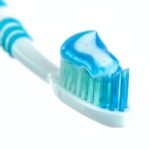
Stress And Dental Health
Stress is a known contributor to poor dental health, with research linking it to an increase in oral diseases and conditions, such as gum disease and tooth decay. This article explores the connection between stress and dental health, including the impacts of long-term stress on oral health, how psychological distress can lead to physical symptoms, and what preventive measures can be taken to maintain good dental health.
The hormonal changes associated with stress weaken the body’s ability to resist bacteria that cause cavities and other oral infections. Psychological distress is also known to impact the body physically, with increased cortisol production, which can lead to bone loss around teeth or enamel erosion due to acidity in saliva caused by anxiety.
Therefore, it is essential for individuals experiencing chronic stress or psychological distress related to their dental health to take preventive measures to maintain good oral hygiene, such as regular visits with a dentist, brushing their teeth twice a day, and flossing daily. Lifestyle changes such as reducing stress sources or seeking medical help from a professional when necessary may also be beneficial.
The relationship between stress and dental health is evident, with a person’s natural response to stress leading to the release of hormones that adversely affect oral health. Stress can manifest in various ways, from enamel erosion to bruxism (grinding and clenching of teeth leading to jaw pain and other problems). Stress-related anxiety and depression are also linked to a higher risk of gum disease due to reduced motivation for hygiene practices such as flossing or brushing. People must manage their stress levels to maintain good dental health, through exercise, relaxation techniques, or counseling.
Stress has been linked to various oral health issues, such as bruxism, temporomandibular joint pain and disorders, canker sores, and mucosal ulcers. Studies have indicated that stress can activate the body’s fight-or-flight response, leading to changes in the mouth’s environment. An increase in hormones such as cortisol and adrenaline may contribute to increased acid production, decreased salivary flow, dry mouth, increased periodontal pathogenic bacterial growth, and a decrease in protective antibodies.
People with high levels of stress tend to experience more dental problems than those with low levels of stress. Managing stress levels through lifestyle changes such as exercise, adequate sleep, relaxation techniques, and effective communication skills can prevent or reduce dental issues caused by stress. Regular visits with a dentist will allow for early diagnosis of any developing problems so they can be effectively addressed before they become more serious.
Various coping strategies exist to manage stress and its effects on oral health, such as practicing preventive care, relaxation techniques like deep breathing, yoga, or meditation, eating a balanced diet with foods low in sugar, avoiding tobacco products, and maintaining an active lifestyle. A healthy lifestyle combined with regular dental checkups can help ensure good oral hygiene even when feeling stressed out. By taking steps to address both physical and psychological factors of stress, individuals can maintain good oral health over time.
Managing stress levels can reduce the risk of developing certain conditions associated with poor oral health, promote mental clarity and relaxation, and improve overall well-being and quality of life. Regular visits to the dentist can be beneficial in detecting any potential issues early on and helping to maintain good dental hygiene habits. In conclusion, managing stress is essential in maintaining good dental health, and individuals should take preventive measures, engage in effective stress management strategies, and adopt a healthy lifestyle to achieve this.





